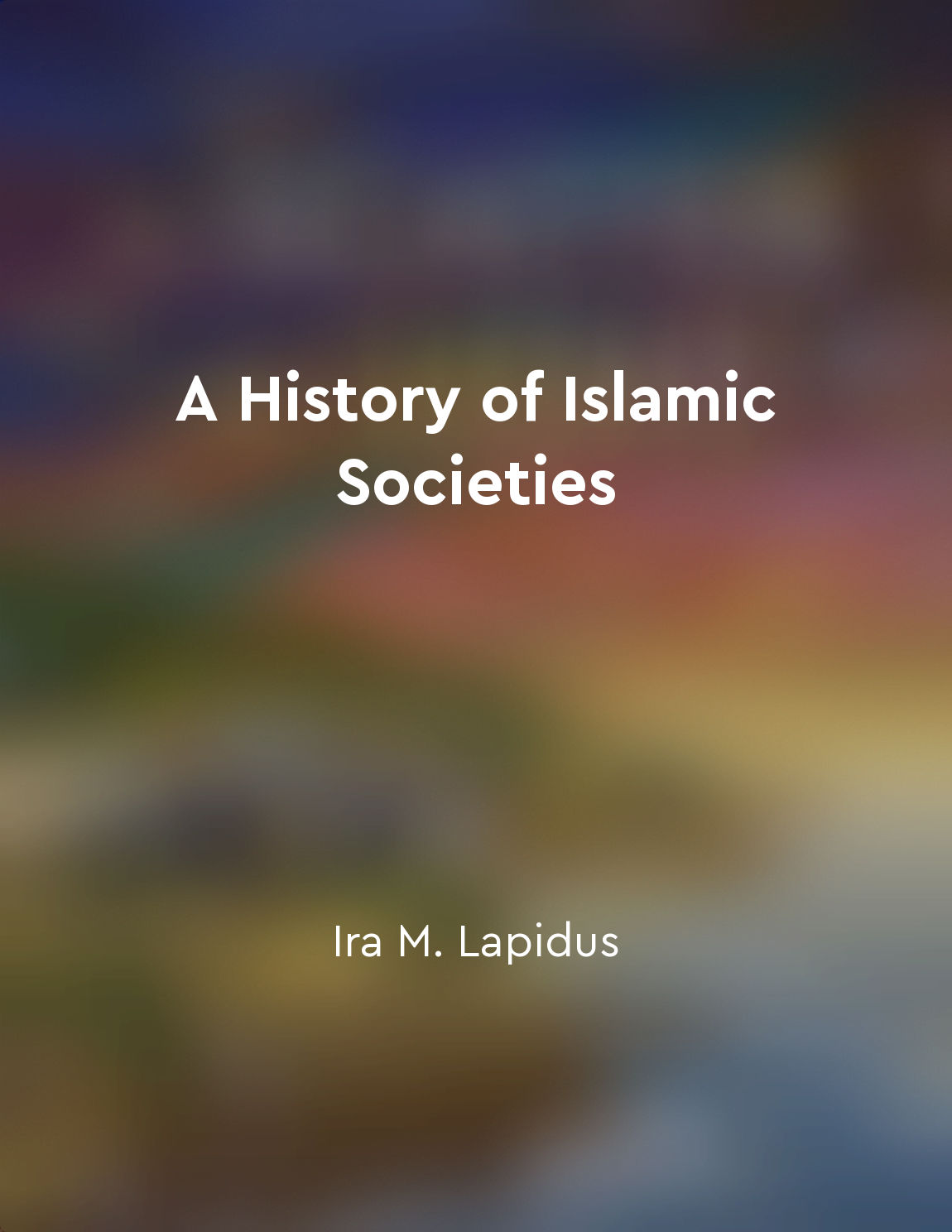Globalization has had a profound impact on Islamic societies from "summary" of A History of Islamic Societies by Ira M. Lapidus
The global interconnectedness that characterizes the contemporary world has had far-reaching effects on Islamic societies, shaping their cultural, economic, and political landscapes in profound ways. The rapid flow of people, goods, and ideas across borders has facilitated the exchange of Islamic beliefs and practices, leading to a greater diversity and hybridity within the Islamic world. One of the most visible impacts of globalization on Islamic societies is the spread of new communication technologies, such as the internet and social media. These platforms have enabled Muslims around the world to connect with each other, share information, and engage in religious discussions in ways that were not possible before. As a result, Islamic communities have become more interconnected, transcending geographical boundaries and fostering a sense of global Muslim identity. Furthermore, globalization has transformed the economic structures of many Islamic societies, as they have become increasingly integrated into the global economy. The rise of multinational corporations and global supply chains has brought new opportunities and challenges to Muslim-majority countries, reshaping their labor markets, consumption patterns, and modes of production. This has led to both economic growth and disparities within Islamic societies, as some countries have benefitted more from globalization than others. In addition to economic and cultural changes, globalization has also influenced the political dynamics of Islamic societies. The spread of democratic ideals and human rights discourse has put pressure on authoritarian regimes in the Muslim world to democratize and respect the rights of their citizens. At the same time, transnational issues such as terrorism, climate change, and migration have forced Islamic societies to cooperate with other nations and international organizations to address common challenges.- The impact of globalization on Islamic societies has been complex and multifaceted, affecting various aspects of their social, economic, and political life. While globalization has brought new opportunities and connections to the Islamic world, it has also raised concerns about cultural homogenization, economic inequality, and political instability. As Islamic societies continue to navigate the challenges and opportunities of globalization, it is clear that their future will be shaped by their ability to adapt to an ever-changing global environment.
Similar Posts
Social mobility differs globally
Social mobility, or the ability of individuals to move up or down the social ladder, is not the same in every country around th...

The Mongol Invasions disrupted the stability of Islamic societies
The Mongol invasions, which commenced in the early thirteenth century, were a significant turning point in the history of Islam...
Ethnographic research allows for indepth understanding of cultures
Ethnographic research, with its emphasis on immersing oneself in a particular culture, offers a unique opportunity for gaining ...
The caste system continues to influence social dynamics in South Asia
The caste system has been a defining feature of social organization in South Asia for centuries, shaping relationships and inte...

Friedman examines the challenges facing both Israelis and Palestinians
In the complex and deeply entrenched conflict between Israelis and Palestinians, Thomas L. Friedman delves into the multifacete...

